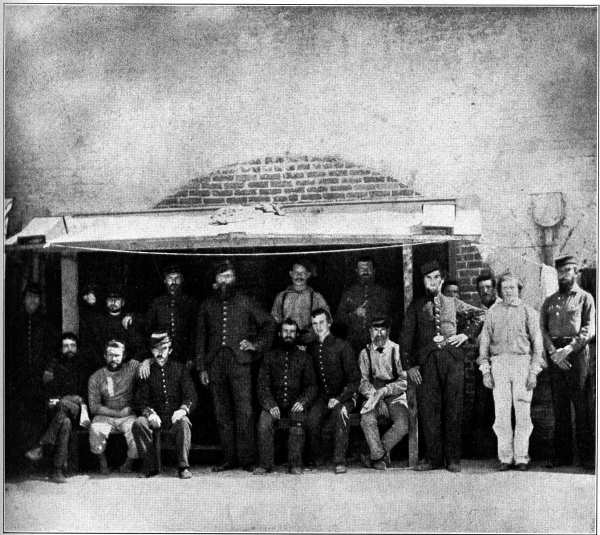
The Bright Side of Prison Lifeó1861
These are some of the
Union prisoners taken at the first battle of Bull Run, July 1861, at Castle
Pinckney, in Charleston Harbor, where they were placed in charge of the
Charleston Zouave Cadets under Captain C. E. Chichester. They received the
same rations as their guardians, and were good-enough soldiers to make
themselves quite comfortable. Later in the war, when rations grew short in
all the Southern armies, prisoners suffered along with the rest. During 1863
the number of prisoners on both sides had increased so largely that their
care began to be a serious matteróboth on account of the expense of feeding
them, and because of the number of soldiers withdrawn from service at the
front in order to guard them. The cost of caring for prisoners by the tens
of thousands was felt in the North as well as in the South, but in the
latter section it finally came to be physically and economically impossible
to keep the prisoners' rations up to standard. The South had nothing
wherewith to feed its own soldiers and even went to the extreme of
liberating 13,000 sick prisoners. Its resources were exhausted. It was lack
of food quite as much as the exhaustion of military strength which caused
the ultimate downfall of the Confederate States. |
